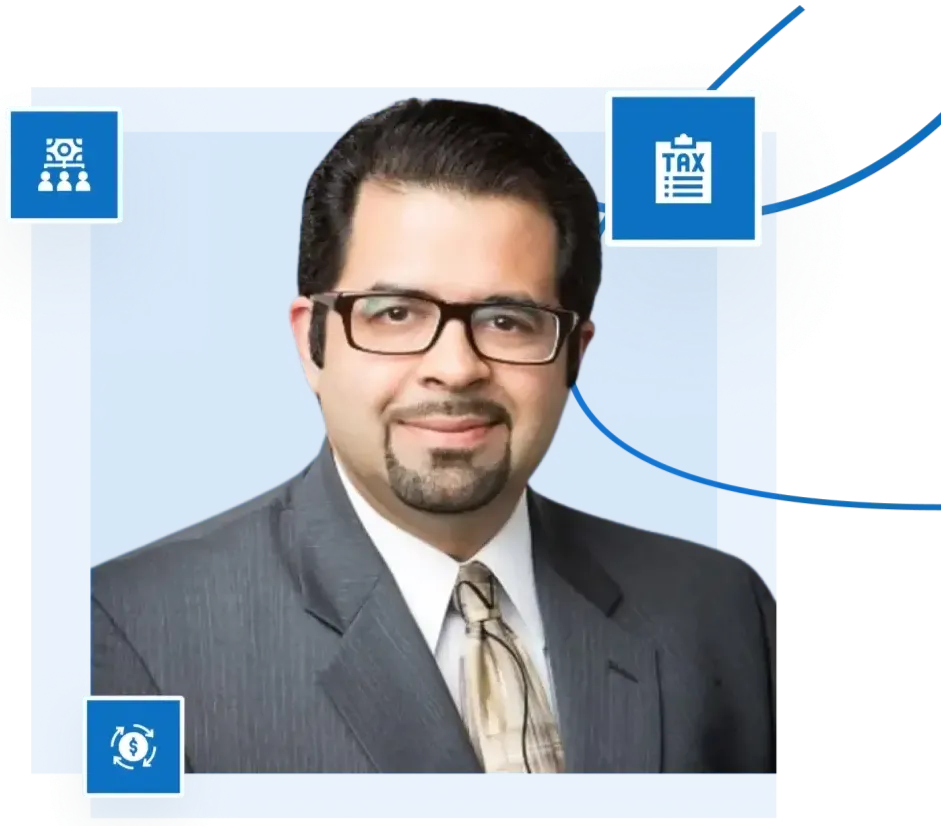
Accounting for Medical Practices: Everything You Must Know
Use this blog for all the information you require on accounting for medical practices, regardless of how long you have been in the medical field or how recently you opened for business.
Table of Contents
- What Differentiates Accounting for Medical Practices?
- Importance of Medical Accounting
- Decide on the Appropriate
- Necessary Precise Tracking for Your Medical Practice
- Maintaining Paperwork and Record
- Invoicing and Compensation
- Reports and Financial Statements
- Controlling the Receivables
- Forecasting and Budgeting
Your lengthy medical school education did a great job educating you to help your patients. Regretfully, they also need to teach you how to run a business. Because of this, healthcare workers frequently lack the necessary skills to handle their organizations’ accounting and tax obligations.
Worse, the healthcare industry’s peculiarities lead to financial problems beyond most business owners. Healthcare billing procedures present the most accounting issues for medical practices. Most businesses offer their customers a service in exchange for steady payment.
Unfortunately, to offer their patients care, medical practices must arrange payment between the patients and their insurance companies. There are many more moving parts than in general, making it far more likely that something may go wrong.
For instance, medical coders make errors, patients do not pay their bills, and insurance companies deny claims. Consequently, medical practices must set up even more effective data tracking and organization systems.


Importance of Medical Accounting
Every choice made in the medical field has the potential to affect patients’ health, and often does. This also applies to accounting for health care. Finding ways to improve a facility’s patient care plans’ financial efficiency without compromising the standard of care provided might frequently be the work at hand.
Therefore, a health care organization’s ultimate goal of offering affordable care that may improve patient outcomes depends heavily on the work of a health care accountant. Because of this factor, studying healthcare accounting is an exceptionally fulfilling area of accounting.
Medical firms might choose between accrual or cash-based accounting when it comes to accounting for physicians. Thanks to accrual accounting, healthcare accountants can now record expenses as bills arrive rather than after payments are made.
This procedure also applies to patient billing. Due to its challenges, accrual accounting is not widely used in medical practices, even though it often yields more accurate accounting than other approaches.
Compared to other accounting techniques, cash-based accounting is far more prevalent in medical practices.
You adopt this approach by recording expenses as soon as they are paid and receivables as soon as money is received. After all unpaid bills have been paid, a doctor will often get payment.

Difference Between Cash Accounting & Accrual Basis Accounting
Cash Basis Accounting
Revenues and costs are only documented using this approach upon receipt or payment in cash. It’s easier to understand and provides a clear view of the practice’s cash position at all times.
Accrual Basis Accounting
whatever happens, when the money is actually collected or paid, this system records revenues and expenses as soon as they are earned or incurred. Over time, it offers a more realistic view of the practice’s financial situation.
Necessary Precise Tracking for Your Medical Practice
Whether you use accrual or cash-basis accounting, your medical practice accountant or medical CPA must monitor and record numerous things. You will be in charge of tracking more traditional goods that small businesses outside of the medical field also need to track, in addition to some items specific to the medical field.
Maintaining Paperwork and Records
Keeping up-to-date records and paperwork for your medical practice is essential to the success of your enterprise. Erroneous or missing paperwork and records might lead to delays and increase expenses.
You will be in charge of monitoring the following documents and records:
- Basic data on the patient
- Details of insurance
- History of treatment
- Consent documents
Though maintaining accurate records has always been difficult, things were considerably more complicated before computers were invented. Computer record digitalization has made challenging tasks easier to handle.
Invoicing and Compensation
While recordkeeping has benefited somewhat from digitization, medical billing remains more difficult. This industry is characterized by a high volume of moving parts and conflicting interests, which increases the likelihood of a claim being refused or encountering another obstacle.
A more serious problem discovered by an insurance company or the government-run Medicare program could cause a claim to be refused or something as straightforward as a typing error. In addition, medical clinics may have to deal with patients who do not pay their bills on time or at all.
Although there is no foolproof way to deal with these problems, setting up procedures for better data management and organization will help reduce the frequency of billing-related headaches.
Reports and Financial Statements
Your financial reports and statements reveal your medical practice’s financial situation. The cash flow, income, and balance sheets for your medical practice should all be checked regularly. You can stay up-to-date on important indications with the aid of these regular reviews, which comprise:
- Cash flow
- Receivables
- Payables
- Liabilities
- Revenue
- Expenses
Keeping an eye on the financial health of your medical practice enables you to make data-driven decisions and deal with little issues before they develop into larger systemic patterns. Regularly checking your patient’s physical condition is in their best interest, just as it is in yours to keep an eye on the health of your medical business.
Controlling the Receivables
Effective management of your medical practice’s accounts receivable is crucial for maintaining a strong cash flow, a vital component of your company. With enough cash flow, you can cover your company bills and pay your staff.
Getting compensated for your services is always difficult, so you need a strong billing staff to help your medical business get paid more quickly. The most effective teams streamline ineffective billing procedures, reduce ineffective ones, and develop fresh concepts that improve your financial situation.
Forecasting and Budgeting
For your medical practice, forecasting and budgeting are essential components of your overall financial strategy. For instance, cash flow forecasting assists you in spotting financial shortages before they have a significant negative influence on your company. Recognizing cash flow problems enables you to save costs and pursue the collection of delinquent fees before they negatively impact business.
You need to track your expenses and forecast to determine whether your business is still profitable. Without them, you cannot manage your staff’s salaries or other fixed costs of running your medical practice, so you won’t know if you have adequate cash in hand.
Requirements for Compliance and Regulations
The regulatory obligations and compliance issues related to your patients’ data are another feature that makes medical practices distinct. Most likely, you are acquainted with the HIPAA stands for (Health Insurance Portability and Accountability Act). The federal statute known as HIPPA established nationwide guidelines to safeguard patient health information from being disclosed without the informed consent of the patient.
It is essential to guarantee the security of their data while adhering to constantly evolving compliance rules. You can be breaking these standards quickly if you’re not up to date on the latest best practices in your sector.
Simple Financial Management Tips
Here are a few quick recommendations to aid you with financial management. Focus on the most significant ones:
Maintain accurate records: Keep a record of every transaction, including receipt of money and expenditures. Monitor all receipts, invoices, and bills related to each financial activity using a system.
Keep an eye on your costs: Organize and classify your expenses, such as rent, utilities, salaries, medical supplies, and taxes.
Hire a professional:To assure accuracy, manage your finances and taxes with a competent accountant.
Handle your cash flow: To stay on top of things, pay close attention to your accounts receivable and payable. Make sure you have adequate cash on hand to cover your expenses and settle your debts.
Streamline your medical billing: Adding a digital billing system would improve your accounting procedure. It can minimize mistakes by assisting you in electronically sending and receiving payments swiftly and securely.
Further, monitor your financial records and reconcile them regularly. This will provide you with reliable data and assist you in identifying and resolving the differences between your bank accounts and financial statements.

Common Challanges of Medical Accounting
Medical accounting poses a number of difficulties despite being essential to the smooth running of healthcare facilities. These difficulties result from the healthcare sector’s particularities, complicated regulations, and the requirement for accurate financial management. These are a few of the common difficulties:
Complex Billing and Coding Systems
Navigating the intricate billing and coding terrain demands a great deal of expertise. Employees in medical offices need ongoing training to be up to date on the most recent amendments and updates to the code. Furthermore, inaccurate coding can result in either overbilling or underbilling, which has serious financial and judicial consequences.
Resolutions:
Frequent training: Educate employees on the most recent billing and coding changes, such as ICD-10 and CPT codes.
Use of specialized software: Install software for coding and billing that is updated automatically with the most recent codes and laws.
Outsourcing: If internal resources are insufficient, consider outsourcing billing and coding to specialized businesses.
Compliance Towards Regulations
Because laws change frequently, compliance with healthcare rules is a changing target. This necessitates ongoing review and modification of accounting procedures. Heavy fines, legal battles, and reputational harm to the profession may arise from noncompliance.
Resolutions:
Remain educated: Through professional groups, legal advisories, and healthcare periodicals, stay updated on changes to healthcare rules.
Dedicated compliance officer: Assign responsibility for managing all compliance-related tasks to a compliance officer.
Dedicated compliance officer: To guarantee compliance with regulations, conduct internal audits on a regular basis.
Managing Accounts Receivable
It takes a delicate balance to manage the cash flow from accounts receivable effectively. Medical practices must devise swift payment strategies, including—but not limited to—providing several modes of payment, streamlining the billing process, and implementing efficient follow-up protocols for past-due accounts. Long-term receivables delays can greatly impact the practice’s cash flow and capacity to pay for overhead.
Resolutions:
Explicit payment guidelines: Clearly define and inform patients about your payment policies.
Effective mechanisms for billing: Make use of effective billing systems to send out invoices on time and chase down outstanding accounts.
Options for patient financing: To encourage on-time payments, provide patients with financing choices or flexible payment schedules.
Variable Insurance and Healthcare Policies
Practices need to be adaptable and quick to change because insurance and healthcare policies are always changing. This entails keeping up with policy changes, comprehending how they affect invoicing and reimbursement, and modifying accounting procedures as necessary.
Because insurance plans vary so much, it’s also important to fully comprehend the various coverage rules in order to guarantee appropriate invoicing.
Resolutions:
Adaptability and flexibility: Create a flexible strategy to respond swiftly to changes in policy.
Insurance liaison: Designate a staff member to communicate with insurance providers and update them on policy modifications and coverage.
Data Security and Technological Integration
While integrating innovative technological solutions, such as EHRs and accounting software, might simplify accounting procedures, it also raises issues with data security. It is essential to guarantee the integrity and confidentiality of sensitive patient financial data. Strong cybersecurity safeguards, frequent software updates, and data security procedure training for staff members are necessary.
Resolutions:
Safe systems: Invest in technological solutions that are secure and compliant with HIPAA.
Frequent instruction in data security: Teach employees the value of data security and best cybersecurity practices.
Plan for data backup and recovery: Put in place a reliable data backup and recovery process.

Collaborate with CPA (Owais Shamsi)
Frequently Asked Questions
There are two forms of accounting used in medical practice management: accrual and cash basis. The best strategy will usually be determined by the OS CPA Accounting & Tax Consultant after considering the demands of the enterprise.
There are two forms of accounting used in medical practice management: accrual and cash basis. The best strategy will usually be determined by the OS CPA Accounting & Tax Consultant after considering the demands of the enterprise.
Wrapping Up
Medical practice accounting is a complex and developing topic that is essential to the smooth running of healthcare institutions. Proficiency in this field facilitates the delivery of high-quality healthcare services and guarantees the financial viability of the medical profession. Medical accounting techniques and strategies must adapt to the changing healthcare environment, which calls for proactive and knowledgeable financial management.As an entrepreneur or small business owner, your decision to run your own company probably driven by the more than the joy of creating and analyzing financial statements. Fortunately, our certified publish accountant provides assistance in the efficient management of your books.
